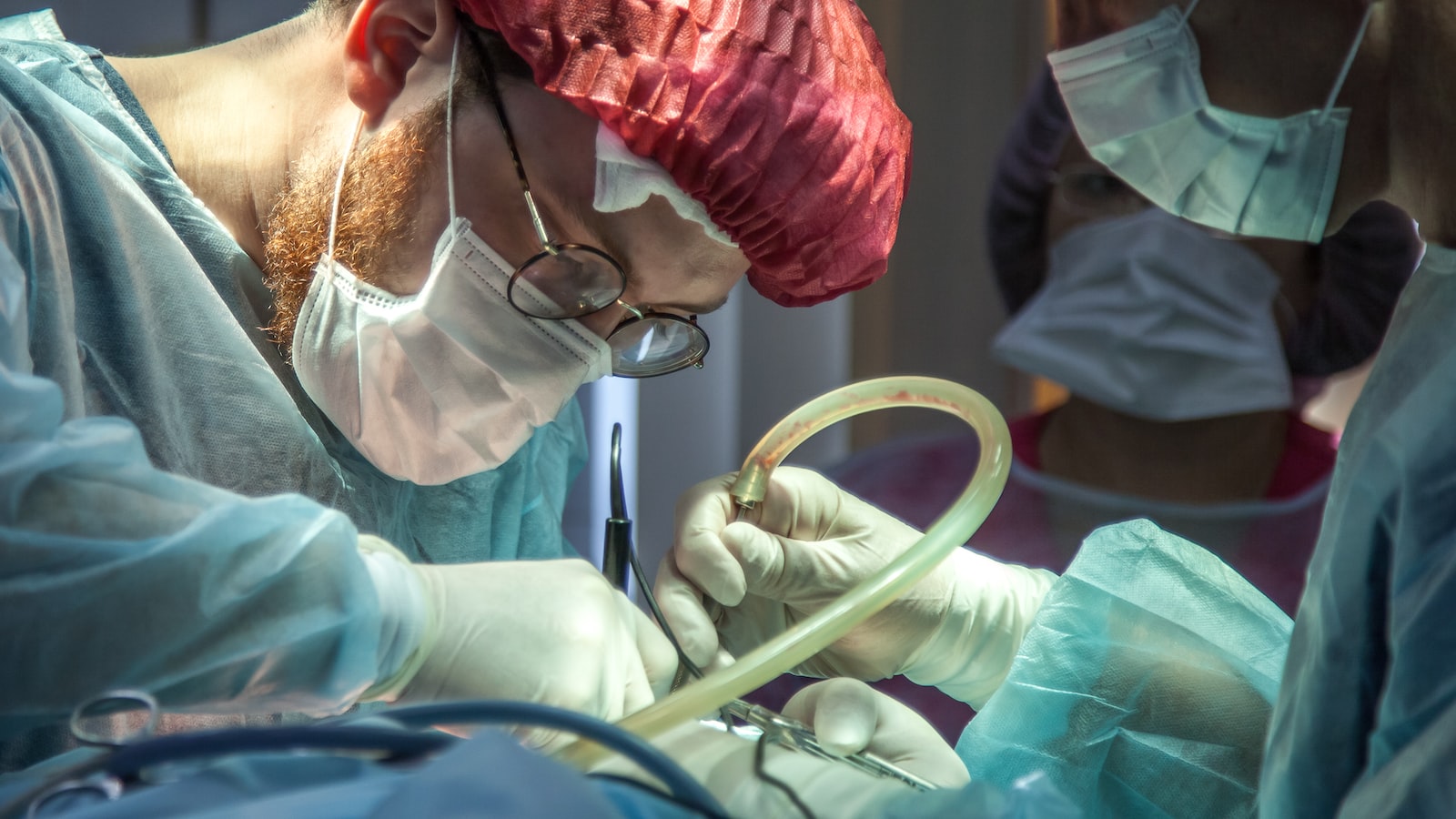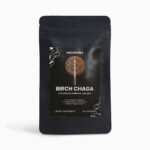
“Recovering from Surgery: Can Supplements Aid the Healing Process?”
Undergoing surgery can be an overwhelming experience, and the journey to recovery is not always easy. Although the human body has an incredible ability to heal itself, some surgeries require much more time and effort to heal than others. Many people wonder if supplements can aid in the healing process and help them recover faster. While some supplements can be beneficial, it’s important to understand which ones are useful and which may not be worth the investment. In this article, we’ll dive into the world of post-surgery supplements and explore whether they can help you recover.
1. Introduction: The Importance of Proper Healing After Surgery
After going through a surgical procedure, proper healing is not only essential for the successful outcome of the surgery but also for the overall recovery process. Adequate healing is vital to help prevent infections, wounds reopening, and other postoperative complications.
Patients need to follow their doctor’s postoperative instructions to ensure proper healing, which often includes taking medication, eating healthy foods, and avoiding certain activities. Patients should also make sure to get enough rest to help speed up the healing process.
Proper healing can significantly improve the recovery process and avoid potential complications. It is crucial for patients to take their postoperative recovery seriously and understand the importance of following their doctor’s instructions to ensure a successful and faster recovery.
2. The Role of Supplements in the Healing Process
Supplements are a powerful tool in the healing process. They can provide the body with nutrients that are lacking in our diet, and help to boost our immune system. Here are some ways that supplements can aid in the healing process:
– Support the immune system: Supplements like Vitamin C, Vitamin D, Zinc, and Echinacea can help boost the immune system, preventing infections and aiding in the body’s healing process. In addition, probiotics can help balance the gut microbiome, which can also strengthen the immune system.
– Reduce inflammation: Many supplements have anti-inflammatory properties that can aid in the healing of injuries and illnesses. Omega-3 fatty acids, turmeric, and ginger are all examples of supplements that can help reduce inflammation in the body.
– Promote tissue repair: Certain supplements, such as Vitamin A, Vitamin C, and collagen, can aid in tissue repair. Vitamin A helps with skin repair, Vitamin C aids in the production of collagen, which is the main protein in our connective tissues, and collagen supplements themselves can help in tissue repair and building.
While supplements can be an important aid in the healing process, it’s important to remember that they should not be used in place of medical treatment. Always consult with your doctor before taking any new supplements, especially if you are on medication or have a chronic illness. With the guidance of your doctor, supplements can be a powerful tool in enhancing your body’s natural healing abilities and speeding up recovery.
3. Top Beneficial Supplements for Post-Surgery Recovery
If you’ve undergone any surgical procedure recently, you’re likely to want to get back to your regular daily activities quickly – and the road to recovery may require some help. Dietary supplements can be an excellent way to expedite your recovery process and ensure your body is receiving the vital nutrients needed to heal properly. Here are three top beneficial supplements to consider adding to your post-surgery routine.
1. Vitamin D
Vitamin D is crucial for bone health and is an essential nutrient for healing after surgery. Without sufficient levels of vitamin D in your body, it can take longer for your bones and tissues to heal. Additionally, vitamin D can aid in reducing inflammation and encouraging blood flow to the affected area, leading to reduced swelling and faster recovery times. Incorporate vitamin D-rich foods into your diet, such as egg yolks, oily fish, and mushrooms, or opt for a high-quality vitamin D supplement.
2. Probiotics
Surgery, coupled with the use of antibiotics, can lead to a decrease in beneficial gut bacteria. This can result in a weakened immune system and increased inflammation, slowing down the healing process. Probiotic supplements can replenish good bacteria and support your digestive system’s health, which can lead to a healthier recovery. A probiotic-rich diet involving fermented foods, such as yogurt and kefir, can also be helpful.
3. Omega-3 Fatty Acids
Omega-3 fatty acids, found in fish, walnuts, and flaxseed, are anti-inflammatory and can help reduce inflammation and swelling post-surgery. They can also support healthy blood flow and brain function, critical in post-surgical recovery. Whether through a supplement or food, incorporating omega-3 fatty acids into your diet can aid in reducing recovery time and help you feel better faster.
Consider discussing these supplements with your doctor as part of your post-surgery care routine. Incorporating these supplements into your daily routine can not only speed up your recovery but also provide additional health benefits. Remember to follow recommended doses and consult a healthcare professional if you experience any adverse reactions.
4. The Science Behind Supplements and Their Effects on Healing
Supplements are often touted as a cure-all for various ailments, but what is the science behind their effectiveness? The human body relies on a complex network of nutrients and chemicals to perform its many functions. When the body is deficient in certain nutrients, it can experience a range of negative effects, from slow healing to chronic illness. Supplements can help bridge these gaps and support the body’s natural healing processes.
It’s important to note that not all supplements are created equal. Some companies make exaggerated claims about the effectiveness of their products, while others may use low-quality ingredients. To ensure that you’re getting the most out of your supplements, look for high-quality, natural ingredients that have been rigorously tested for purity and potency. Additionally, it’s important to work with a healthcare professional to determine what supplements are right for your needs, as different supplements may interact with medications or have unintended side effects.
When used properly and with guidance from a healthcare professional, supplements can have a powerful impact on healing and overall health. Whether you’re recovering from an injury, managing a chronic condition, or simply looking to optimize your wellness, supplements can help support your body’s natural healing processes. With careful consideration of the science behind supplements and a commitment to making informed choices, you can work towards a healthier, happier, and more vibrant future.
5. Risks and Precautions When Taking Supplements After Surgery
Supplements are very popular, with various types available in the market. However, it is crucial to understand that supplements are not intended to cure, diagnose, or treat any disease. Instead, they are supposed to offer nutritional support and improve overall health. If you are preparing for surgery or recovering from it, you may want to take some supplements to aid in the process. However, you should be aware of the potential risks and precautions before taking any supplements.
One risk of taking supplements after surgery is the possibility of interfering with the healing process. Some supplements may increase the risk of bleeding, inflammation, or infection, which can negatively impact the healing process. Therefore, you should avoid taking supplements without first consulting with your surgeon or physician. They will determine if it is safe and recommend the appropriate dosage if deemed necessary.
Additionally, some supplements may interfere with prescription medications, making them less effective. A few supplements may even lead to health complications, especially for individuals with existing health conditions such as diabetes, kidney, or liver diseases. To reduce potential risks, you should adequately research and understand the supplements you want to take and consult with your healthcare provider to ensure they are safe for you to use.
To avoid complications, you should also avoid taking supplements close to the time of the surgery or during immediate recovery. Your body is already going through a lot during this time, and adding supplements to it may cause a negative reaction. Also, ensure to buy supplements from reputed sources, and double-check the ingredients to ensure they are free from contaminants. With proper research and vigilant precautions, taking supplements after surgery can improve your overall health and speed up recovery.
6. How to Incorporate Supplements into Your Post-Surgical Recovery Plan
Supplements can play a crucial role in the post-surgical recovery process. They can help reduce inflammation, aid in the healing of tissues, and boost the immune system. However, it’s important to speak with your healthcare provider before incorporating any supplements into your recovery plan.
One supplement that may be helpful is turmeric. This spice has anti-inflammatory properties and has been shown to aid in reducing pain and inflammation post-surgery. It can be taken in supplement form or added to daily meals.
Another supplement that can aid in the recovery process is vitamin C. This powerful antioxidant can help with the formation of collagen, which is essential in wound healing. It can be found in supplement form or in various fruits such as oranges, kiwi, and strawberries. It’s important to note that excess vitamin C can cause diarrhea, so it’s important to speak with your healthcare provider to determine the appropriate dosage.
Incorporating supplements into your post-surgical recovery plan can help speed up the healing process and reduce pain and inflammation. By consulting with your healthcare provider and incorporating necessary supplements, you can optimize your recovery and get back to feeling your best as soon as possible. Remember to always follow the recommended dosage and speak with your healthcare provider if you have any concerns.
7. Conclusion: The Promising Benefits of Using Supplements for Post-Surgical Recovery
Supplements are a promising solution for individuals who are in post-surgical recovery. After an operation, it is essential to provide the body with essential nutrients to help with the healing process. This can be achieved by incorporating supplements into one’s diet. In this section, we will discuss some of the benefits of using supplements for post-surgical recovery.
- Reduced Inflammation: Many supplements have anti-inflammatory properties that can assist with reducing inflammation caused by post-surgical trauma. These supplements can help reduce swelling, pain, and discomfort.
- Improved Immune System: Surgery causes a significant impact on the immune system. Adequate vitamins, minerals, and nutrients can help boost the immune system, giving the body sufficient energy to heal faster.
- Increased Nutrient Absorption: After surgery, the body may have difficulty processing incoming foods and nutrients. Supplements can help the body absorb essential nutrients, including fiber, iron, and vitamins, which are critical for the body’s overall health.
Hence, adding supplements to a balanced diet after surgery can significantly speed up the healing process, decrease inflammation, and promote overall health. It is crucial to consult with a physician or registered dietitian before starting a supplement regimen. With the right guidance, supplements can help an individual recover quicker and get back to their normal routine with ease.
Recovering from surgery can be a challenging process, but with the right knowledge and approach to supplement use, it doesn’t have to be daunting. Supplements are not a G-rated ‘cure all’, but they do offer some potential for aiding the healing process. Ultimately, the choice is yours— discuss with your healthcare provider the pros and cons of supplement usage in recovering from your surgery.

























